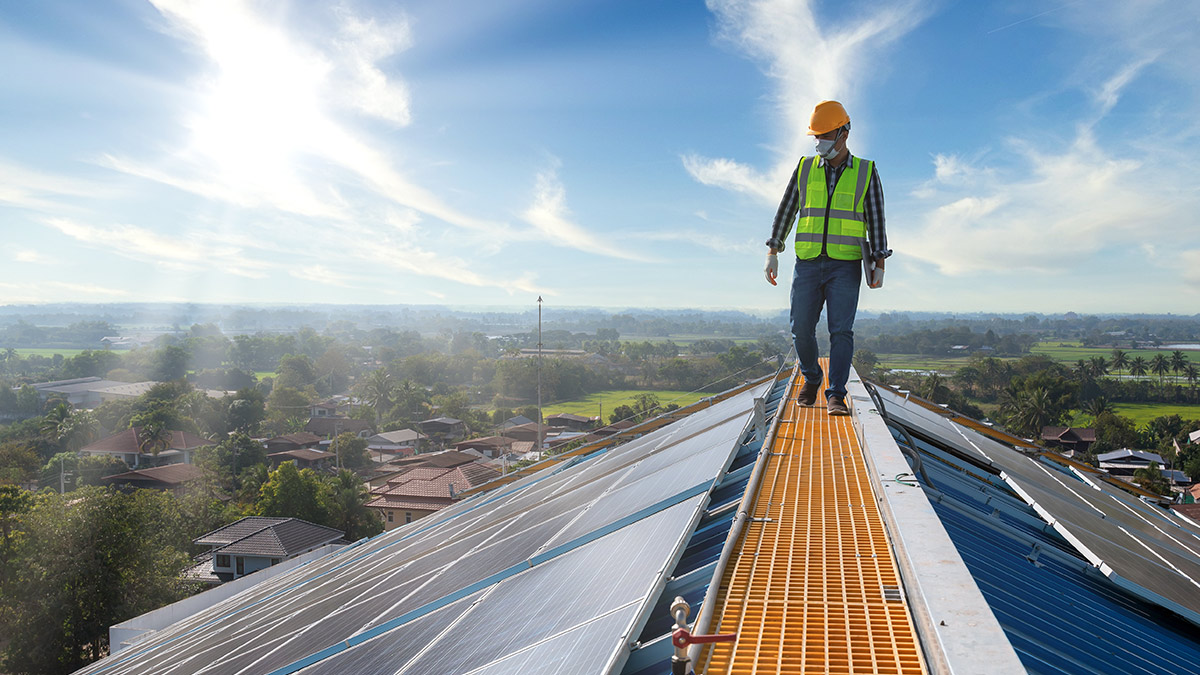The ‘ESG premium’: UBS picks 2 ASX stocks set to benefit (plus 3 more from the housing boom)

Pic: Getty
There’s a “huge wall of money” coming down the line for ESG investments, market analyst Adam Dawes told Stockhead last week.
Companies that meet the market’s expectations for ESG innovation and commercial viability are already some of the best-performing stocks on the ASX (case in point; Vulcan Energy (ASX:VUL)).
And on a macro level, capital flows are being directed in part by investor demands.
In a separate interview with Stockhead, Paul Mitchell – global metals & mining leader at EY – provided a breakdown of how that plays out in the Australian market:
“Almost 40% of the Australian Stock Exchange is super funds and those funds need to be able to satisfy their members.”
“And if they don’t, some manager is going to change or people will vote with their feet in terms of which fund they’re a member of.
“And so the fund managers are trying to reflect the views of their members. And then that’s getting passed down to the mining companies, when they have discussions, so that that really drives that behaviour.
“The majority of the capital market these days is driven by pension funds, sovereign wealth funds, those things that have to respond to what society and what their members want.”
‘The ESG premium’
In that context, the latest Consumption Outlook consumer behaviour survey by UBS Evidence Lab provides some extra context on how end-user investors are thinking about ESG.
The data showed that consumers have become “materially more ESG conscious since Q4 2019”, UBS said.
Of those surveyed, almost 60% of respondents said they’d be willing to pay “2x or more” for socially responsible goods, up from ~45% two years ago.
UBS also said the number of respondents who’d be willing to give up 5% of their retirement savings to invest in ESG has also climbed.
The retirement savings data was “was volatile but has shown a general uptrend since Q4-19”, UBS said.
What the results reflect is an emerging “ESG premium” on the ASX, for companies that can meet the relevant criteria set out by investor demands, the analyst said.
Here’s their picks for stocks that could benefit:
In late July, the power company got an all-clear from regulators to advance the development of its 700MW battery at the Eraring Power Station in New South Wales, which will be one of the largest storage batteries in the Australian market.
Origin has also found success with its investment in UK green power retailer and tech play Octopus Energy, which scored a £211 million capital injection in September from Generation Investment Management, a global fund chaired by Al Gore.
UBS said Origin could also see “margin expansion from its renewable gas offerings, which could attract a similar premium with almost half of respondents willing to pay two times or more for renewably energy”.
The outdoor travel and equipment company is one of the retailers positioned to benefit from another survey indicator – positive spending intentions.
Huge house price gains and high savings rates leave Australian consumers well positioned to spend up on goods and services when the economy reopens, UBS said.
KMD is “well-placed to benefit, given elevated clothing & footwear spending intentions.
The analysts also baked the “ESG premium” into their analysis, based on Kathmandu’s publicly-stated intentions to run its network as a net-zero carbon emitter by 2025.
UBS flagged “upside from margin expansion” stemming from that decision, given almost 60% of respondents indicated a willingness to pay up for socially responsible goods.
The housing boom
Elsewhere in their analysis, UBS dialled in on stocks that could benefit from the wealth effect as a result of higher house prices, and broader strength in consumer confidence.
While APRA has reintroduced macro-pru to Australia’s booming property market, UBS still “expects the housing boom to continue”.
The bank’s forecast is for house prices to rise by another 5-10% in 2022, following this year’s 20% surge.
As a result, “spending intentions for home improvement, furniture & household appliances, as well as computer and audio” have risen “even further from already elevated levels”, UBS said.
Within the ASX’s retail landscape, UBS has a buy rating on Harvey Norman (ASX:HVN), and online furniture play Adairs (ASX:ADH).
The bank is also bullish on Adore Beauty (ASX:ABY), the online beauty products outlet that’s down by more than 30% over the past 12 months since its IPO last year.
ABY “stands to benefit from the online spending trend and the elevated spending intentions for clothing & footwear over the next 12 months, in line with our upbeat view on ‘experiences’,” UBS said.
The latest UBS Evidence Lab was the ninth iteration of its quarterly online survey of 1,000 consumers in Australia.
The survey was carried out between August 20 and September 9.
“The distribution of survey respondents was designed to mirror the population of Australia by using census data for age, gender, income and region distribution”, UBS said.
UNLOCK INSIGHTS
Discover the untold stories of emerging ASX stocks.
Daily news and expert analysis, it's free to subscribe.
By proceeding, you confirm you understand that we handle personal information in accordance with our Privacy Policy.








